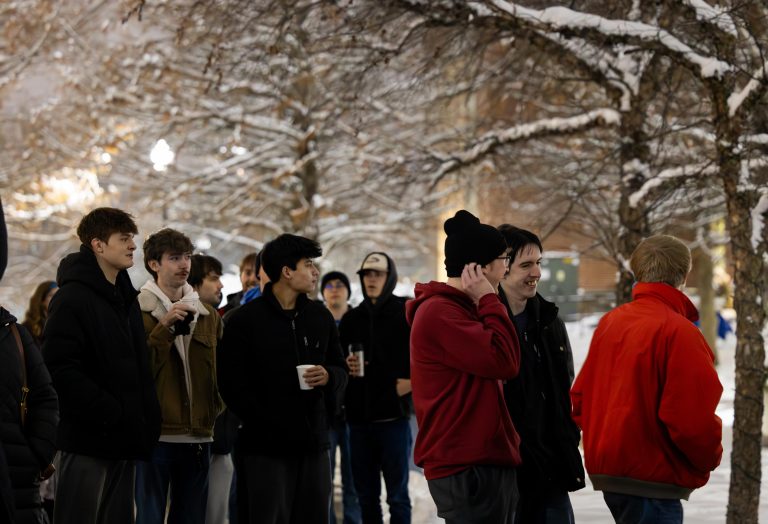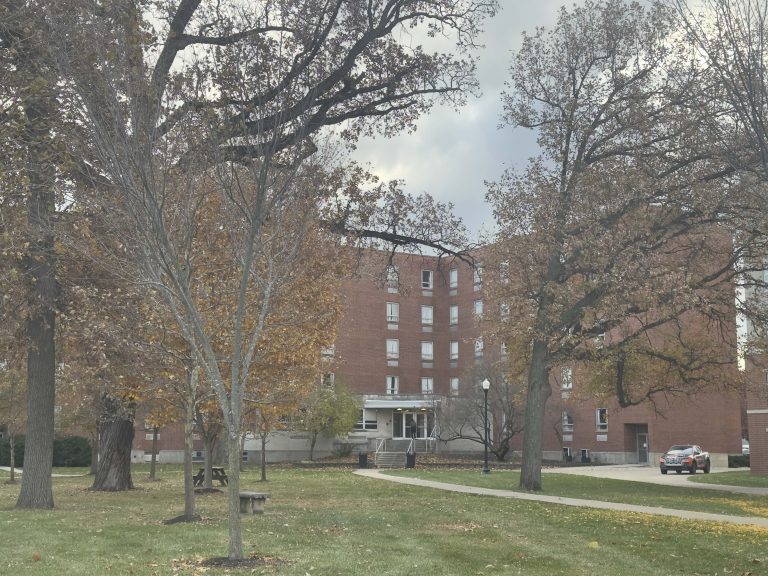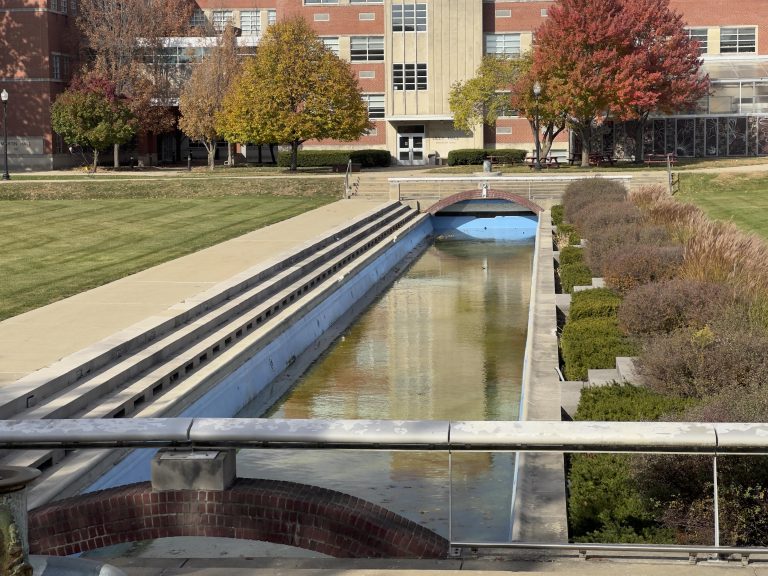Speakers at the In Their Own Words: Storytelling by Immigrants and Refugees event shared stories of sacrifice, hard work and the American dream on Oct. 30 in the Annis Theater in the Health Pavilion.
The speakers shared stories about leaving their home countries in search of a better life in the United States and described their lives now.
The event began with guest speaker Una Hartzell-Baird from Bosnia. When war broke out in Bosnia, her parents made the decision to leave and seek refuge in the United States, Baird, who was young at the time, talked about not being able to understand why her family made the choice to move and leave everything they knew behind.
Baird did not understand the sacrifice that her parents had made, she said. It was because of family members in the states that they were able to get sponsored and obtain refugee status to stay legally in the United States.
Upon their arrival, they received three months worth of food stamps and Medicaid but were expected to stand on their own feet after the time was up.
Baird said that seeing what her parents had to go through was difficult. They were in their 40s and had to get accustomed to a new way of life. Some saw this as a weakness and would take advantage of her parents.
Baird said she was hesitant to learn a new language and to explore her new life. One of the biggest culture shocks for her came when she began school and noticed all the diversity in the classroom, which was rare in Bosnia.
She said it took her time to adjust, but now she embraces her roots and diversity. She has a one-year-old child and said she can’t imagine having to do everything her parents did for her when she was young.
Next was Christopher Bawi, an English and history major from Burma. Bawi talked about the military coup in 1962 that led to the 1988 democratic uprising in Burma that forced him to move to the U.S.
Bawi spoke about the idea he had about what the American dream was because of what he had seen in the media. He said he imagined life in the states as seen in movies, where everyone is just relaxing on a beach.
All the propaganda painted a picture of an easy life, Bawi said. Once he was here, he realized that was not the case. He had to start with a factory job and now is preparing to graduate from UIndy.
“It’s a totally different struggle. We have to start everything from scratch,” Bawi said.
Bawi currently is focusing on his education. He said that he hopes eventually to earn a Ph.D.
“When I finish with everything, I want to go back and share this experience,” Bawi said. “I want to share about this human society and share about American values and American education.”
Isaias Guerrero, a 2009 UIndy graduate, followed Bawi with his story of moving to Indiana from Columbia. Guerrero came to the U.S. when he was 15 years old and talked about how his life revolved around having a good imagination.
To get by, he said he had to imagine what had to be done in order build their future in a new place.
“It was difficult because of the language. I came to a high school that only had five Latinos, so there was a lot of racism and discrimination. It was hard,” Guerrero said. “…I very quickly understood [that] the reality of being an immigrant and undocumented is when there are not policies that are friendly towards immigrants.”
Guerrero said that he had to keep his status a secret and only confided in a small group. He said that meeting others in his situation helped him overcome his struggles and accept his circumstances.
He said he became involved with organizations such as Mi Gente that wanted to reach out and help those like him. He and the students he met would go around the country trying to spread their message and once went on a hunger strike to get policymakers to take action.
According to Guerrero, speaking at a campus helps speakers to share their stories and spread their message.
“I think [it is important] for the undocumented students here, for them to feel that sharing our stories is safe and that it helps to break down the discrimination and the negative feelings towards immigrants,” Guerrero said. “To those that are not immigrants and are learning about this for the first time. [It is important] to create that awareness, break the stereotypes that there are in the undocumented community and hopefully push people to push policies that are reflective of the values of Hoosiers.”
The Deferred Action for Childhood Arrivals immigration policy gave Guerrero the opportunity to have a license and work permit upon the renewal of his DACA status.
He also was able to request permission to visit Colombia for educational reasons. With DACA ending this year, he said he is left with his permits for two years at the most.
“DACA is ending, so I think it is the Dream Act that we are trying to push forward,” Guerrero said. “We have a political opportunity until December for it to become a reality. So I think the main thing is [that] we know Americans support it. Well, the majority of people in the U.S. support the Dream Act and a pathway for dreamers. I think the question is whether this administration and the members of Congress and the Republican Party will choose to either support immigrants and democracy or white supremacists.”
Bawi ended his presentation with a positive message.
“If we can understand each other, we can create love.”






